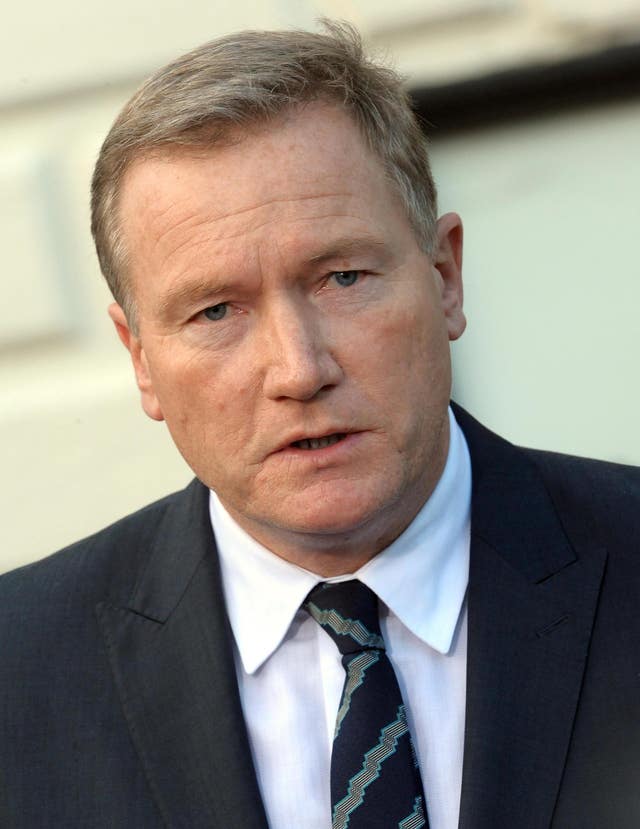The recent managerial appointments of Darren Moore and Jobi McAnuff continued an encouraging trend for black and ethnic minority managers, though there are still only six in England's top four divisions.
Moore left League One Doncaster to step up to the Championship with Sheffield Wednesday, while McAnuff was named as Leyton Orient's interim manager for the remainder of the season after Ross Embleton's departure.
He joined Moore, Nottingham Forest manager Chris Hughton, Barnsley's Valerien Ismael and Burton boss Jimmy Floyd Hasselbaink in the EFL while Wolves boss Nuno Espirito Santo flies the flag in the Premier League.

All bar Nuno were appointed this season, meaning the good news is five of this season's 33 managerial appointments have been black or ethnic minority candidates – equating to 15.2 per cent, comfortably the highest that figure has been – but overall representation is low and the average tenure remains much shorter in that group.
While no full, definitive data on this issue has been compiled – the League Managers Association is "in the process of undertaking both quantitative and qualitative research in this area" – research by the PA news agency indicates the previous high in the Premier League era was just over 10 per cent of new appointments, seven out of 69 in the 2014-15 season.
Even with three months to go in the season, the current campaign ranks third in terms of the raw number of appointments – there were six in 2017-18, representing 8.7 per cent of that season's 69 new appointments.
The 2003-04 season stands out as a low point, with 53 new managers appointed but no opportunities given to black or ethnic minority candidates.
Another less encouraging figure is the average length of tenure for black and ethnic minority managers, which PA's research shows is 465 days compared to 667 for all other managers in the Premier League era – around 30 per cent shorter on average.

A statement from LMA chief executive Richard Bevan to PA read: "The LMA continues to address systematic attitudes and inequalities which create barriers to employment for individuals from under-represented and minority communities within the game.
"We are committed to helping remove these barriers to increase diversity and equality of opportunity across football.
"Recent progress indicates the beginnings of a shift in culture at the governance and administrative levels of the game but it is also clear that the game is fragile in this area and that individual incidents, social media and entrenched positions can easily disrupt progress.
"The stakeholders in the game, including the LMA, The (Football Association), Premier League, EFL and (Professional Footballers' Association), are currently reviewing the career development pathways for managers and coaches across the game, under the Integrated Coaching Strategy (ICS).
"The ICS is specifically reviewing the coach development pathway for black, Asian and mixed heritage individuals, in both the men's and women's professional game, and is in the process of undertaking both quantitative and qualitative research in this area."

There were no black or ethnic minority managers in situ at the start of the Premier League era, and the most found at any one time in PA's research covering the period since was eight.
That happened in 2018, between Dino Maamria's appointment at Stevenage on March 20 and Jack Lester's departure from Chesterfield on April 23. The pair were joined by Nuno, Hughton – then at Brighton – Chris Powell at Southend, Jose Morais at Barnsley and Keith Curle at Carlisle, with Hasselbaink in charge of Northampton up to April 2 and Moore appointed by West Brom the following day.
Morais and Curle left their roles that May but Curle joined Northampton in the October and Sol Campbell's November appointment at Macclesfield took the total back up to eight, until Moore left Albion in March 2019.
/https%3A%2F%2Fsportsmole-media-prod.s3.gra.io.cloud.ovh.net%2F21%2F03%2Fdarren-moore.jpg)
/https%3A%2F%2Fsportsmole-media-prod.s3.gra.io.cloud.ovh.net%2Fuploads%2F2025%2F09%2Fjoshua-king-of-fulham-on-august-30-2025-68bbe4c0915be978566843.jpg)
/https%3A%2F%2Fsportsmole-media-prod.s3.gra.io.cloud.ovh.net%2Fuploads%2F2025%2F09%2Ffoden-68cc6e7ade2df168613462.jpg)
/https%3A%2F%2Fsportsmole-media-prod.s3.gra.io.cloud.ovh.net%2Fuploads%2F2025%2F11%2Faaa-pep-guardiola-sportsphoto-692801eb6fa9d775080488.jpg)
/https%3A%2F%2Fsportsmole-media-prod.s3.gra.io.cloud.ovh.net%2Fuploads%2F2025%2F11%2Fmatthijs-de-ligt-harry-maguire-patrick-dorgu-in-action-for-manchester-united-on-september-20-2025-pro-sports-images-692ba574dcde1657031363.jpg)